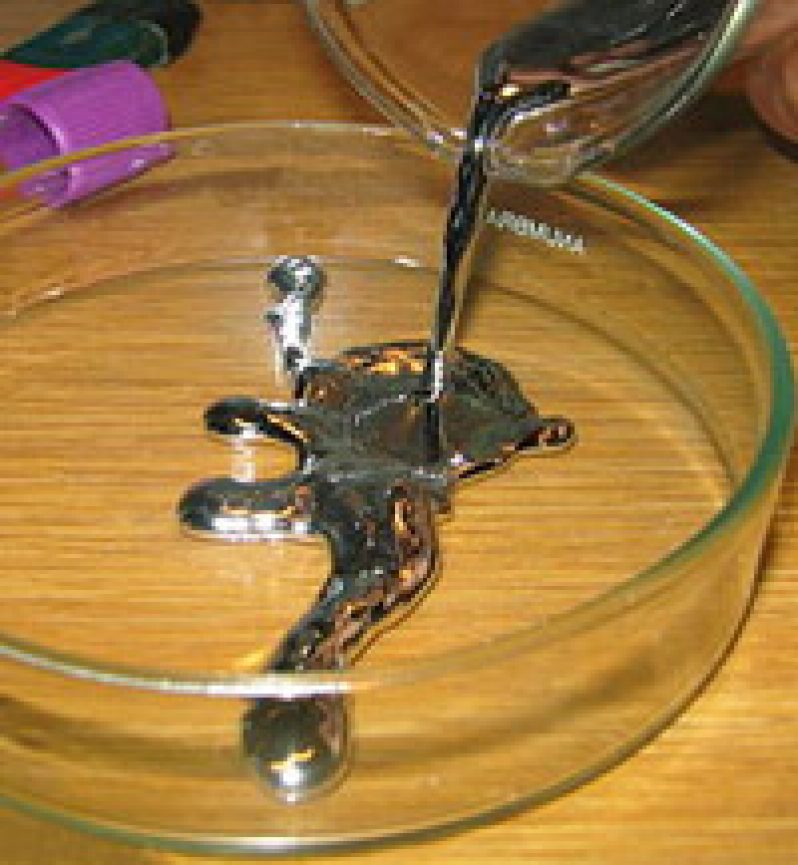THE World Wildlife Fund (WWF) Guianas has recommended a public education programme to inform local gold jewellers on the dangers of contamination by mercury.
The WWF said it should provide information on how mercury can damage human beings, sources of exposure to it in the making of gold jewels, first aid response to its contamination and clean-up in response to spills.
 The WWF Guianas is also recommending that the Guyana Geology and Mines Commission (GGMC) and the Occupational Health and Safety Unit consider closer monitoring of gold jewellery establishments to ensure that personal protective equipment and first aid kits are provided and utilised by jewellers.
The WWF Guianas is also recommending that the Guyana Geology and Mines Commission (GGMC) and the Occupational Health and Safety Unit consider closer monitoring of gold jewellery establishments to ensure that personal protective equipment and first aid kits are provided and utilised by jewellers.
The WWF Guianas said, on Thursday, that its recommendations are based on the results of a study on the use of mercury in the jewellery industry conducted by the School of Earth and Environmental Sciences of the University of Guyana (UG).
The WWF Guianas had funded the survey which began in 2009 and targeted jewellers in Regions 3 (Essequibo Islands/West Demerara) and 4 (Demerara/Mahaica).
It was undertaken using tests of urine and hair samples, which revealed that 70 percent of 126 jewellers tested for mercury contamination had above normal or elevated total mercury levels.
EXPOSURE
The results concluded that the higher levels of mercury among those jewellers would, most likely, have been due to their exposure to the substance while melting gold amalgam.
Inter alia, it was also noted that 46.8 percent of the jewellers surveyed rarely used personal protective equipment in their establishments.
Only 3.2 percent of the persons tested in the survey reported always using protective equipment while utilising mercury in the course of their work and, in 85 percent of the jewellery establishments surveyed none of the workers was equipped for personal protection.
The WWF Guianas statement emphasised that mercury is a dangerous thing for human beings and that symptoms of methyl mercury poisoning may include impairment of the peripheral vision and speech, lack of coordination of movements, hearing, walking and muscle weakness.
High exposure to elementary mercury in vapour can lead to kidney problems, respiratory failure and even death the release said.
In addition to the recommendations with respect to public education and closer monitoring by regulators, the WWF urged that there should be a thorough assessment of the handling, storage and disposal of other chemicals used in the jewellery making process in the context of good occupational health and safety practices.



.jpg)








